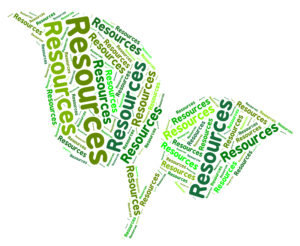The Alta California Regional Center
Alta’s Mission
Alta California Regional Center (ACRC) creates partnerships with other community agencies to support and meet the global needs of individuals with substantial developmental disabilities, including infants at risk and their families. Alta works with families in choosing and coordinating services and supports to achieve healthy, productive, individuals with developmental disabilities and maximize their opportunities and choices. Alta’s goal is to fill in the gaps. If a need cannot be met through an existing agency or service, than Alta comes in to fill in the gap. Alta serves 10 counties: Alpine, Colusa, El Dorado, Nevada, Placer, Sacramento, Sierra, Sutter, Yolo, and Yuba.
Developmental Disabilities Defined
It is important to understand what is meant by a substantial developmental disability in order to understand how an individual qualifies for services. In this case there are two intertwined working definitions here: developmental disability and substantial disability.
The Lanterman Developmental Disabilities Services Act (AB 846) defines “developmental disability” as a disability attributable to intellectual disability (mental retardation, cerebral palsy, epilepsy, autism, or other handicapping conditions found to be closely related to mental retardation or to require treatment similar to that of mental retardation. Developmental disabilities are furthered defined as originating before the age of 18, continues for a lifetime, and is found to be a substantial disability for the individual.
Substantial disability is the ultimate determination in whether an individual qualifies for services. A substantial disability is defined as a condition which results in major impairments or significant functional limitations in three or more of the following major life activities: cognitive (learning), social functioning, communication, self-care, mobility, self-direction, capacity for independent living, and economic self-sufficiency. Furthermore, a substantial disability represents a condition of sufficient impairment to require interdisciplinary planning and coordination of special or generic services to assist the individual in achieving maximum potential.
Developmental Disabilities does not include handicapping conditions that are solely psychiatric, solely due to learning disabilities, neurologically based physical disorders
Making It Happen
In order for you or your child to receive ongoing services an supports from ACRC, there must be a diagnosis of a developmental disability – and this disability must be considered a substantial disability. This means that you will need to go through a process to determine if you or your child meets the eligibility conditions. Alta calls this process “intake.” ACRC person who coordinates this process with you is called an “Intake Specialist.”
How Are Services Determined
Every individual found eligible (the consumer) for ACRC services is first assigned a Service Coordinator. This person works with the individual and/or family to determine needed services and coordinate getting those services in place. The process of determining services is a team planning effort. At a minimum, the team consists of the consumer (or the consumer’s legal representative), and the Service Coordinator. Additional persons may become involved depending upon the services needed.
The planning team develops a written Individual Program Plan (IPP) or Individual Family Service Plan (IFSP), which establishes the long-range goals for the consumer. It also outlines the services and funding supports required to meet those goals. Any service for a consumer that ACRC funds must be identified in the IPP/IFSP. The regional center service coordinator works directly with the consumer and family members in implementing goals outlined in the IPP/IFSP.
What Services Are Offered
The list of services includes, but are not limited to: residential services, vocational programs, transportation, respite, adult day programs, Independent Living Skills (ILS) training, Supported Living Services (SLS), early intervention and prevention services, one-to-one aides in day programs and residential care homes, durable medical equipment, behavior management support, medical services, advocacy, information and referral, prenatal diagnosis, counseling support/referral, and diagnosis and evaluation.
What Supports Are Offered
Alta not only offer services, but they offer support as well. These include:
community education about developmental disabilities, community resource development, consultation to public and private agencies serving individuals with developmental disabilities, continuous 24-hour out-of-home care, counseling support/referral, early intervention services for at risk infants and their families, expert testimony for regional center consumers appearing before the courts, genetic counseling referral, Individual Program Planning (IPP), information and referral, early Autism treatment, prenatal diagnosis, purchasing necessary services, and service coordination (case management).
Contact Information
Address:
2241 Harvard Street, Suite 100
Sacramento CA 95815
Phone:
(916) 978-6400
Website:
Other Links


